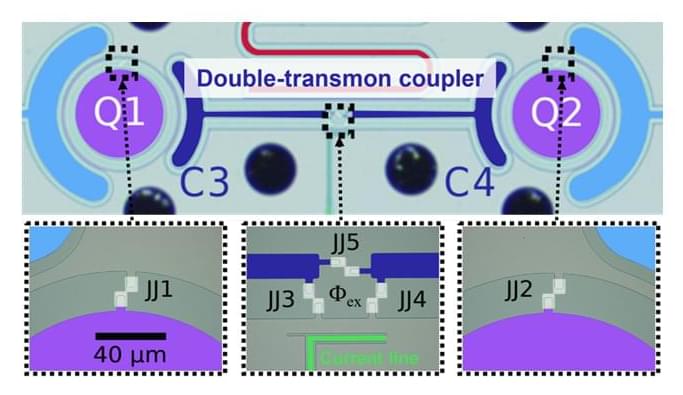PRESS RELEASE —-Toshiba Corporation (Toshiba) has confirmed a technology that they claimed promises to advance progress toward the development of higher-performance quantum computers through an investigation of a potential advance in quantum computing. Experiments conducted by a joint research group from Toshiba and RIKEN, one of Japan’s largest comprehensive research institutions, have successfully realized a Double-Transmon Coupler, a solution for superconducting quantum computers initially proposed by Toshiba. The researchers achieved a world-class fidelity of 99.90% for a two-qubit gate, which is at the heart of quantum computation. Fidelity is a standard performance indicator for quantum gates, quantifying how close an operation is to the ideal in a range from 0% to 100%, with higher percentages indicating greater accuracy in the quantum gate’s operation.
Originally proposed by Toshiba in a paper from September 2022, the Double-Transmon Coupler is a tunable coupler that holds the key to improving the performance of superconducting quantum computers. In successful experimental realization, Toshiba and RIKEN have confirmed its theoretical superiority over conventional tunable couplers in suppressing the long-standing problem of unnecessary residual coupling and enabling high-speed, high-fidelity two-qubit gates.
To improve the performance of two-qubit gates, the coherence time, the period for which the quantum superposition state can be maintained — critical in quantum computers — must be extended. Gates must also be executed quickly and the strength of residual coupling must be suppressed to reduce the errors it causes. The Toshiba-RIKEN team achieved a world-class coherence time for the transmon qubit, a short gate time of 48 ns, and reduced the residual coupling strength to as low as 6 kHz, thereby achieving a fidelity of 99.90%.









Leave a reply